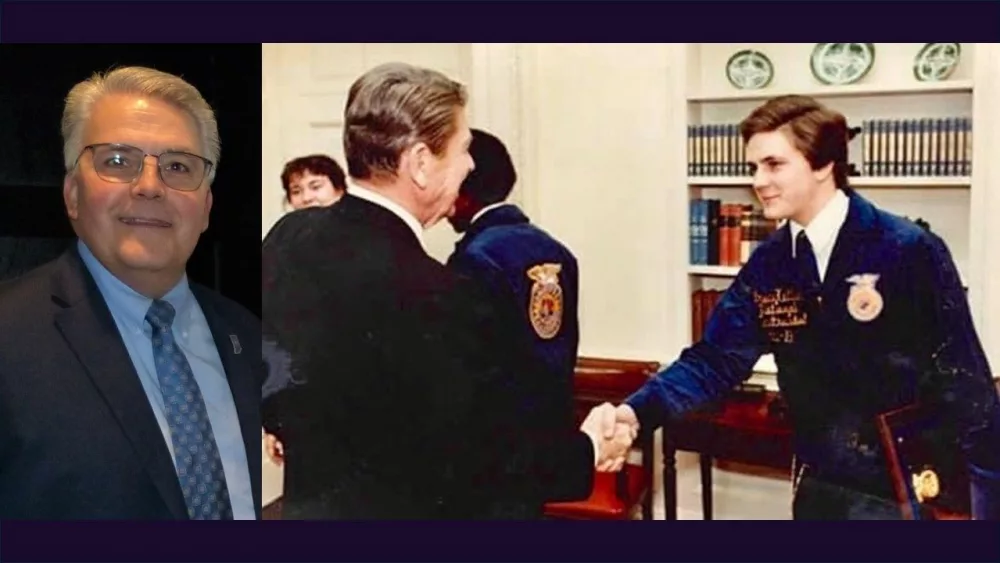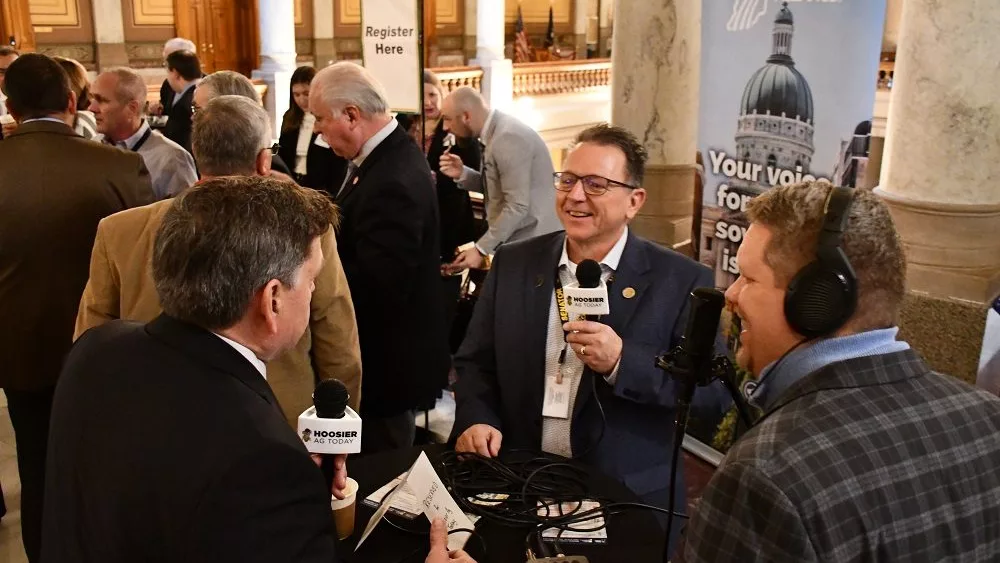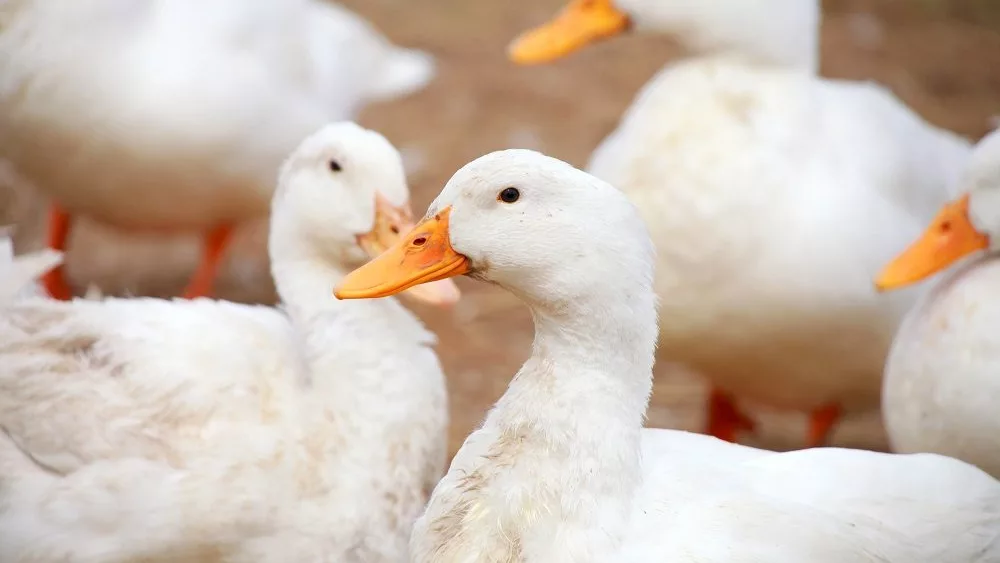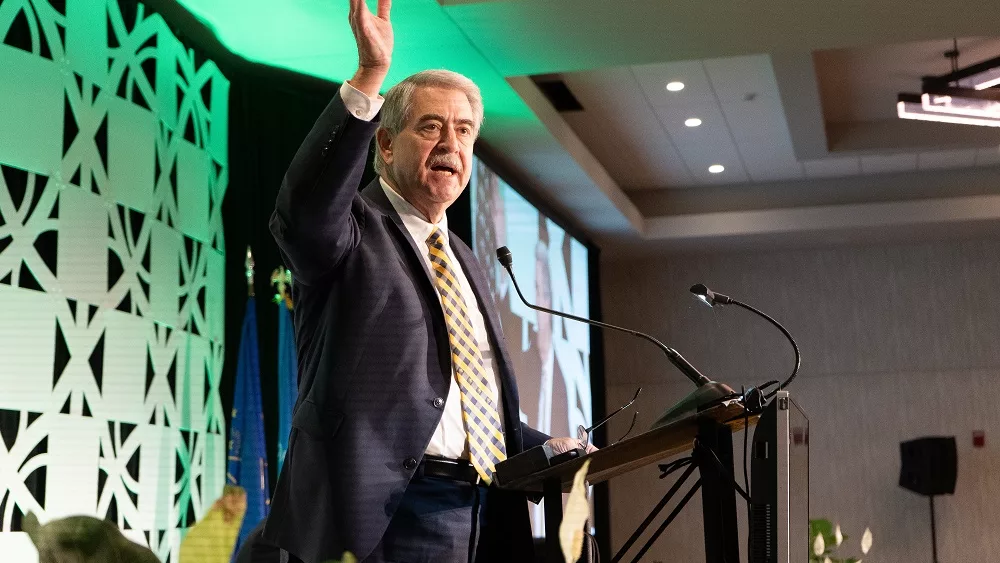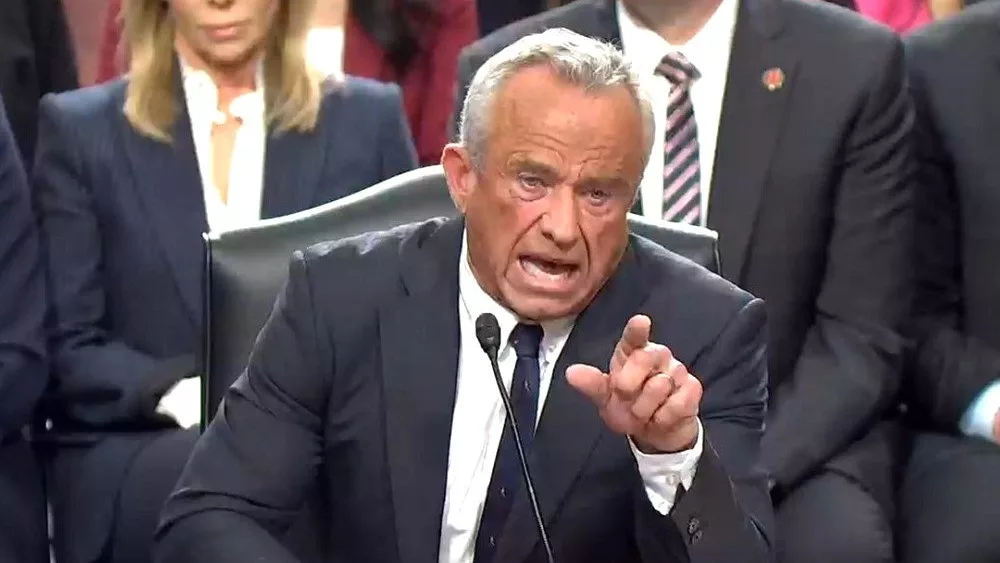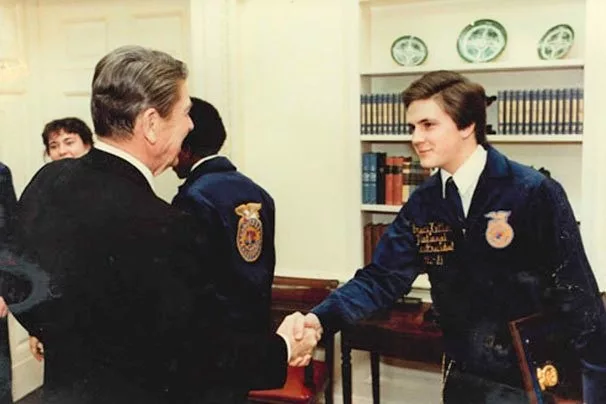
Among the U.S. Presidents who have served during the past 50 years, the one that may have had the greatest impact on agriculture was President Ronald Reagan. At the start of his administration, more American farmers were losing their farms than at any time since the Great Depression of the 1930s.
In a speech given to the National FFA in the Rose Garden of the White House on a hot summer day on July 29, 1983, President Reagan delivered the following words of optimism—not just for the young students in attendance, but for farm families across the country:
“I know things have been rough and still are for many farmers, but I hope when you go back to your homes, you’ll tell your families and your friends that America’s farmers are not going to be left out of the good times that lie ahead.”
Standing just within feet of the President during that speech was Bruce Kettler. At the time, Kettler was serving as National FFA Eastern Region Vice President from Ohio and got the chance to meet President Reagan at the White House not once, but twice.
“We met him in the Oval Office in December after we were elected in November,” according to Kettler. “I just remember, at the time, the gentle nature of him as a person. He was very interested in in learning, understanding and knowing more about FFA and what we were interested in accomplishing in our years as national officers. Then, in July 1983 during the FFA State Presidents’ Conference, we met with him in the Rose Garden and we had an opportunity to be able to learn from him there.”
Kettler is now President and CEO of the Agribusiness Council of Indiana. He also served as Director of the Indiana State Department of Agriculture from 2018 to 2022.
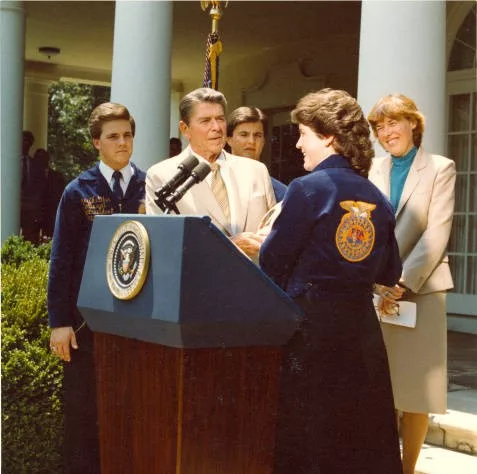
At the time when Kettler served as National FFA Officer, it was among the most difficult times for America’s farmers.
“There were a lot of young people that grew up on farms that I think would certainly want to have gone back to the farm, but knew with the high prices and high inflation, that wasn’t going to be a reality for them,” says Kettler.
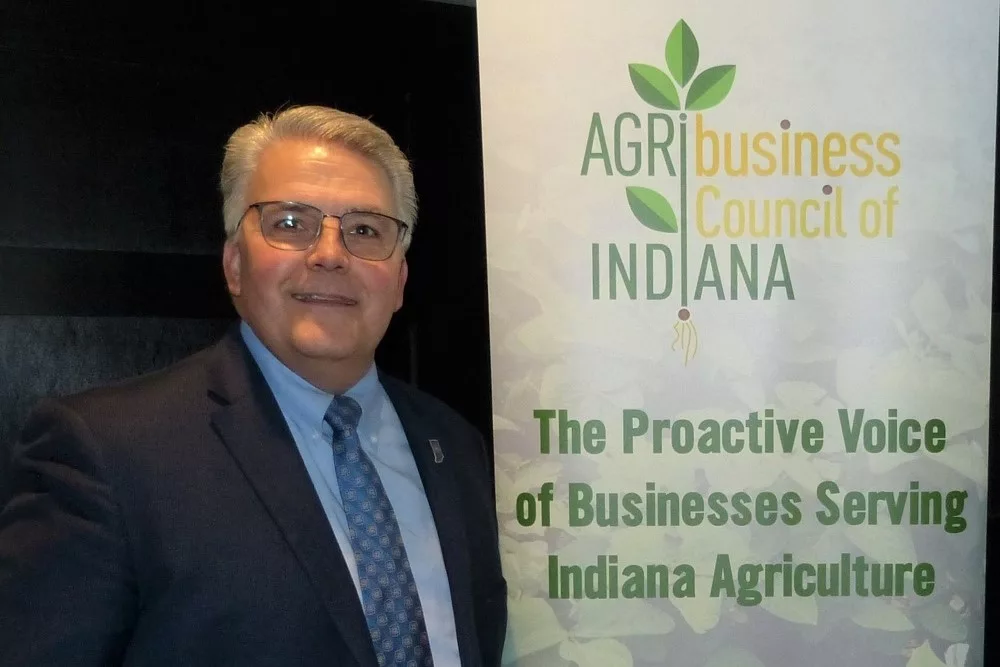
 Reagan established a number of economic policies that supported America’s ag industry—including the need for sustained credit and cash flow to farmers, and pushing for increased international exports for America’s ag products.
Reagan established a number of economic policies that supported America’s ag industry—including the need for sustained credit and cash flow to farmers, and pushing for increased international exports for America’s ag products.
Kettler ads that Reagan not only supported the American farmer—but future farmers as well.
“What I’ve always appreciated about President Reagan was that he understood the importance of two things: agriculture and youth. He really appreciated what FFA could do to develop the youth that would then go serve in food, agriculture and other areas as well,” says Kettler.
During that same speech that Kettler witnessed in the White House Rose Garden on that hot summer day back in July of 1983, President Reagan gave this parting message to the FFA and America’s farmers:
“Remember that back at the time the ideals of our nation emerged, it was composed overwhelmingly of men and women who made their living from the land. Today we rely on you to maintain our ties to the land and to live up to our ideals, and I know you won’t let us down.”

